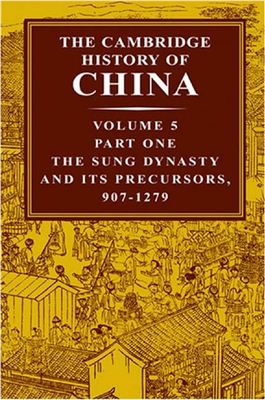This first of two volumes on the Sung Dynasty (960-1279) and its
Five Dynasties and Southe Kingdoms precursors presents the
political history of China from the fall of the T'ang Dynasty in
907 to the Mongol conquest of the Southe Sung in
1279. Its twelve chapters survey the personalities and events that marked the rise, consolidation, and demise of the Sung polity during an era of profound social, economic, and intellectual ferment. The authors place particular emphasis on the emergence of a politically conscious literati class during the Sung, characterized by the increasing importance of the examination system early in the dynasty and on the rise of the tao-hsueh (Neo-Confucian) movement toward the end. In addition, they highlight the destabilizing influence of factionalism and ministerial despotism on Sung political culture and the impact of the powerful steppe empires of the Khitan Liao, Tangut Hsi Hsia, Jurchen Chin, and Mongol Y?an on the shape and tempo of Sung dynastic events.
1279. Its twelve chapters survey the personalities and events that marked the rise, consolidation, and demise of the Sung polity during an era of profound social, economic, and intellectual ferment. The authors place particular emphasis on the emergence of a politically conscious literati class during the Sung, characterized by the increasing importance of the examination system early in the dynasty and on the rise of the tao-hsueh (Neo-Confucian) movement toward the end. In addition, they highlight the destabilizing influence of factionalism and ministerial despotism on Sung political culture and the impact of the powerful steppe empires of the Khitan Liao, Tangut Hsi Hsia, Jurchen Chin, and Mongol Y?an on the shape and tempo of Sung dynastic events.

